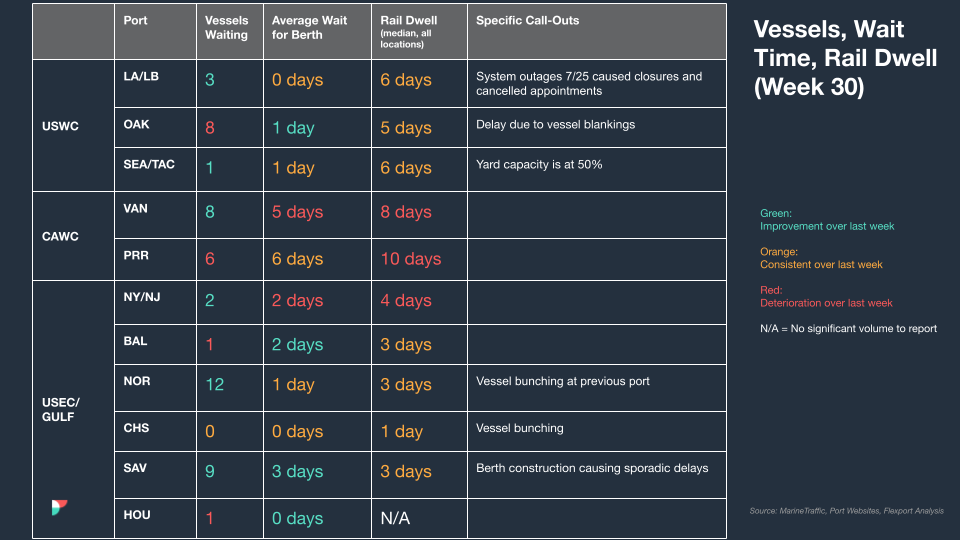Trends to Watch
- [Regional – British Columbia] A third tentative agreement has been reached between the International Longshore and Warehouse Union (ILWU) Canada and the BC Maritime Employers Association (BCMEA)—with a vote scheduled for Friday. As the situation continues to be fast-changing, please reach out to your account representative for the latest information on potential impacts to your shipments.
- [Regional – Panama Canal] As of July 30, daily capacity at the Panama Canal has been lowered to roughly 32 vessels per day (10 vessels allowed in the Neopanamax lock and 22 in the Panamax lock) with potential for even steeper adjustments depending on future weather forecasts and other factors.
- [Ocean – TPEB] Terminals at the Port of Los Angeles will be closed Thursday, August 3 while members of the International Longshore and Warehouse Union (ILWU) meet to discuss the status of contract negotiations.
- [Regional – East Asia] As of writing, Typhoon Khanun is centered west of Okinawa. The storm is forecast to gradually move west-northwestward into the East China Sea through Thursday the 3rd. Port impacts are possible, please check with your account representative for updated info on potential impact on your shipments.
North America Vessel Dwell Times

| This Week In News |
| Why Supply Chain Execs Should Watch the U.S. Housing Market
In this panel discussion with Supply Chain Dive, Flexport’s Chief Economist, Phil Levy, weighs in on the Federal Reserve’s attempt to control inflation since March of last year by increasing interest rates and how this puts a damper on the demand for personal consumer goods. He advises businesses to not overextend themselves and “watch the labor market and whether core inflationary measures are moving significantly downwards.” Could Generative AI Solve Fashion’s Excess Stock Problems? Advocates for generative AI believe that focusing on building the proper foundations of data science and machine learning now will pave the way for an easy-to-use generative AI-powered supply chain in the future. AI, in its current state, has already transformed supply chain management through more accurate demand forecasting, more insightful data analyses, and faster decision-making. But generative AI has the potential to take these benefits one step further by speeding up the inventory management process, for example, and solving present and future supply chain challenges. |
Source from Flexport.com
